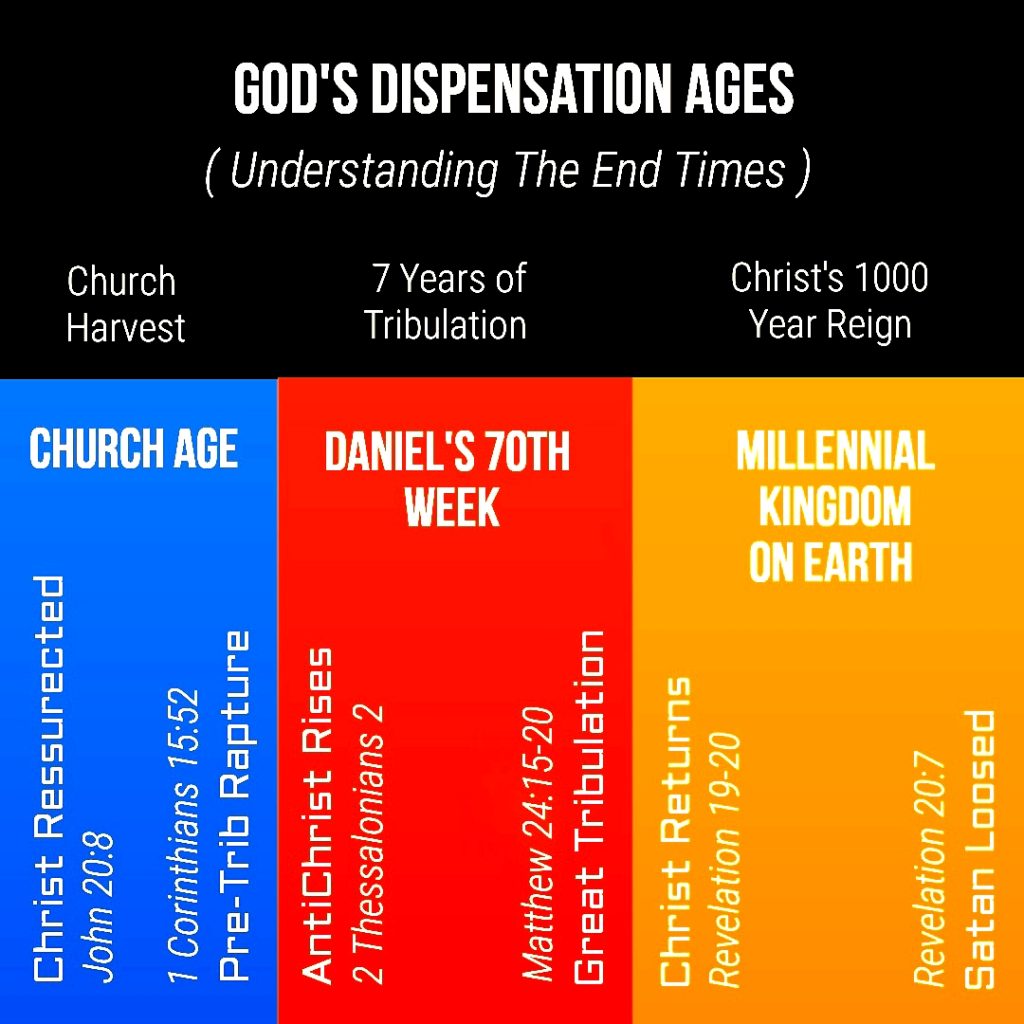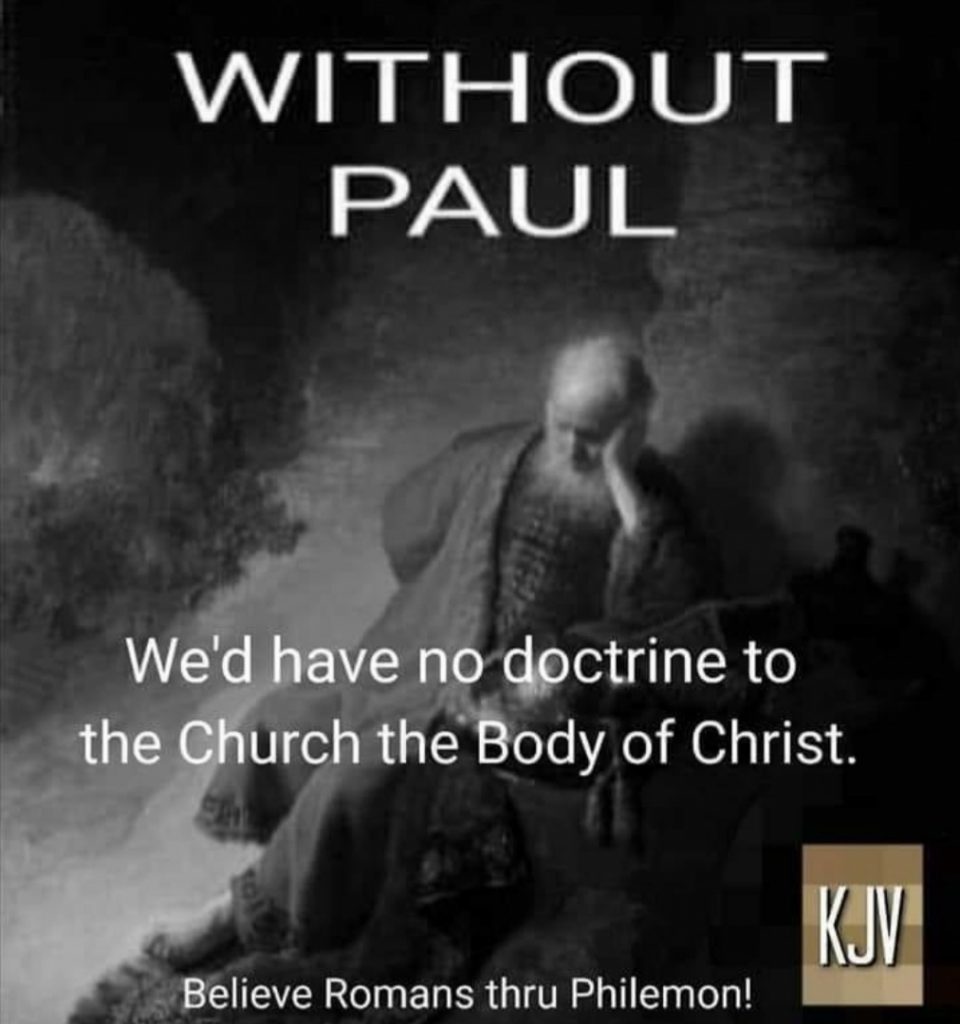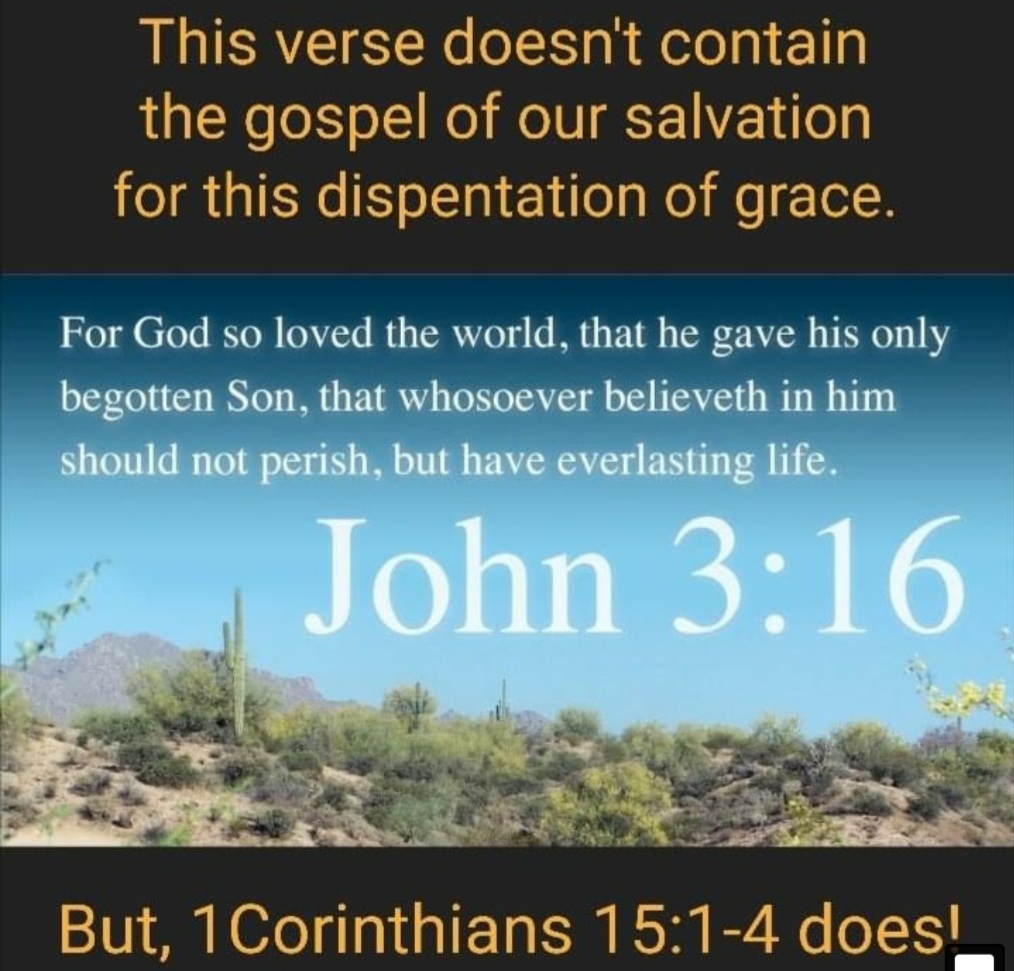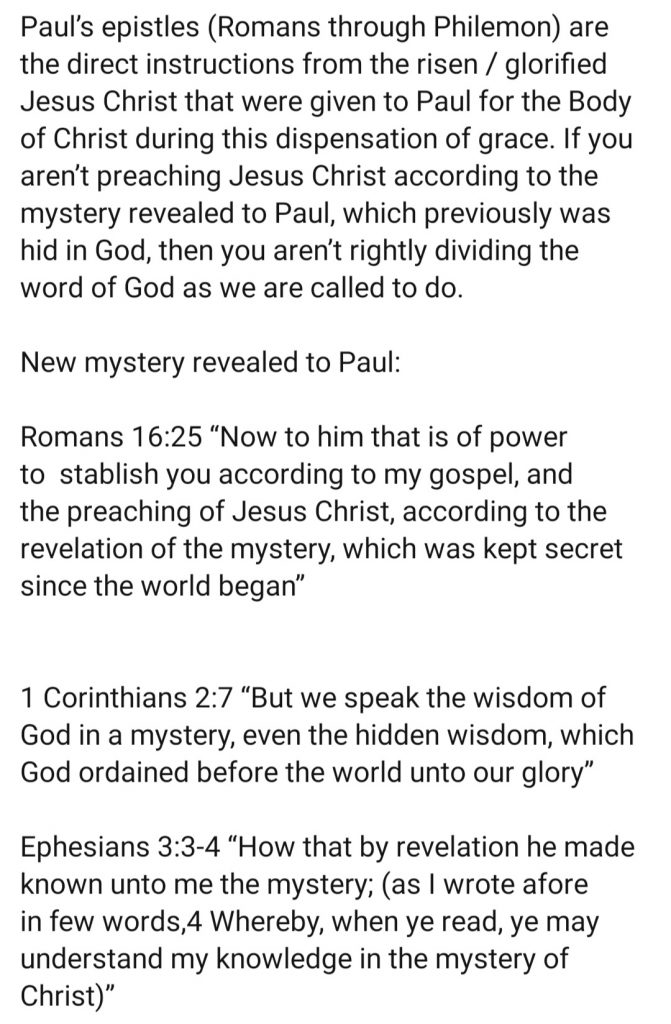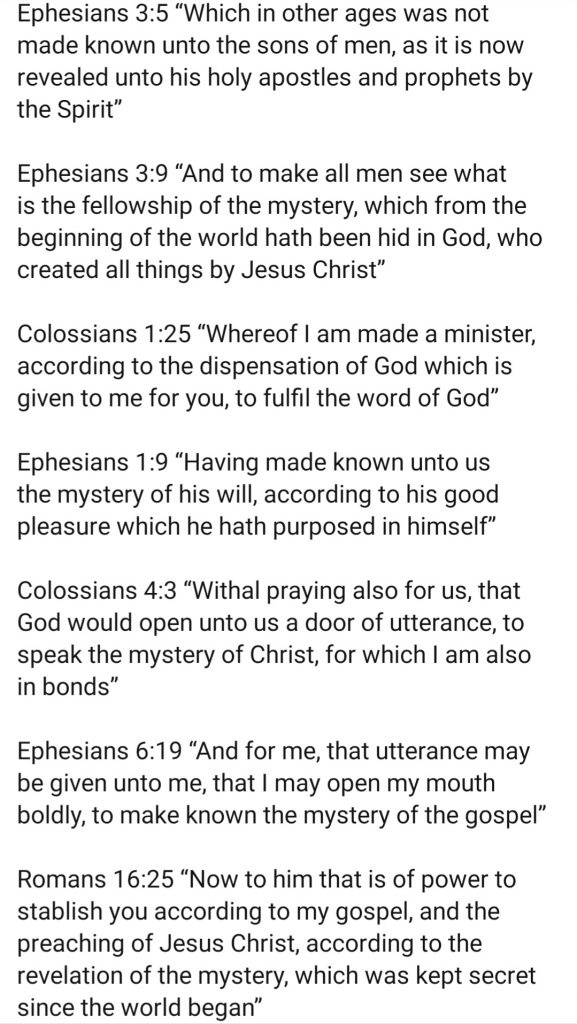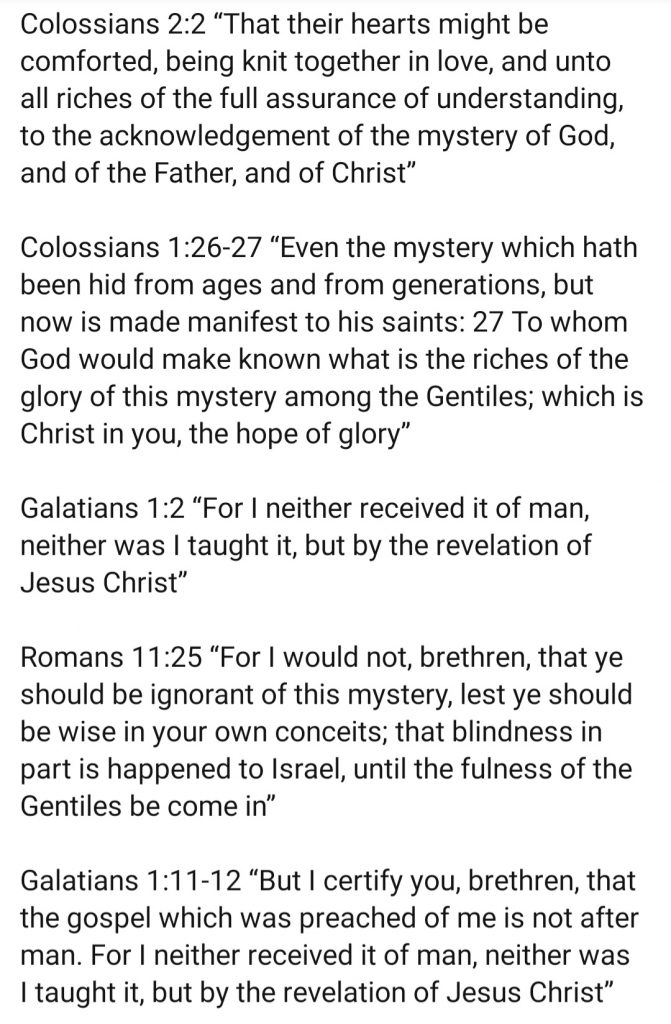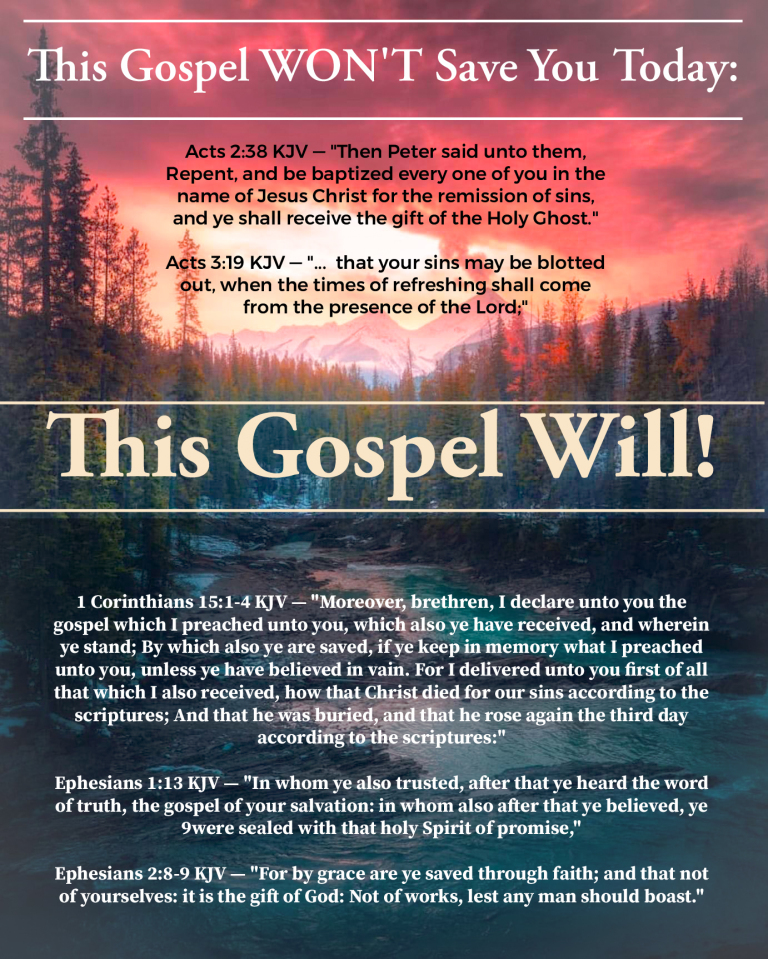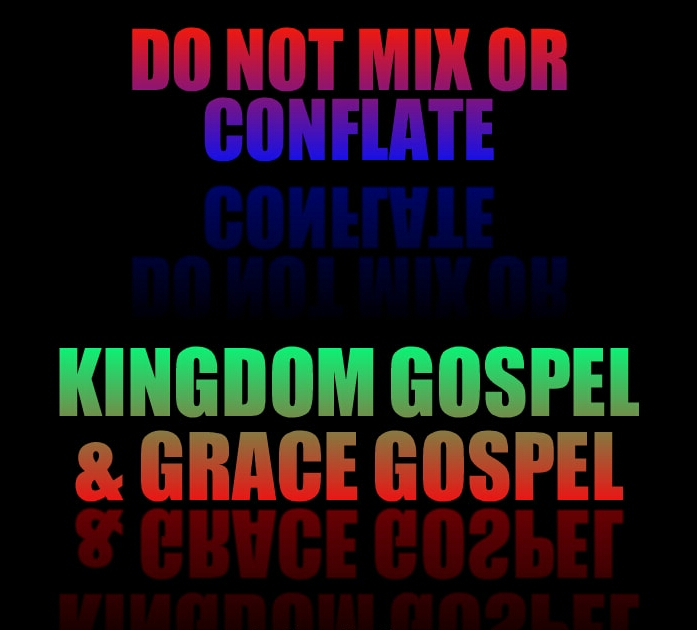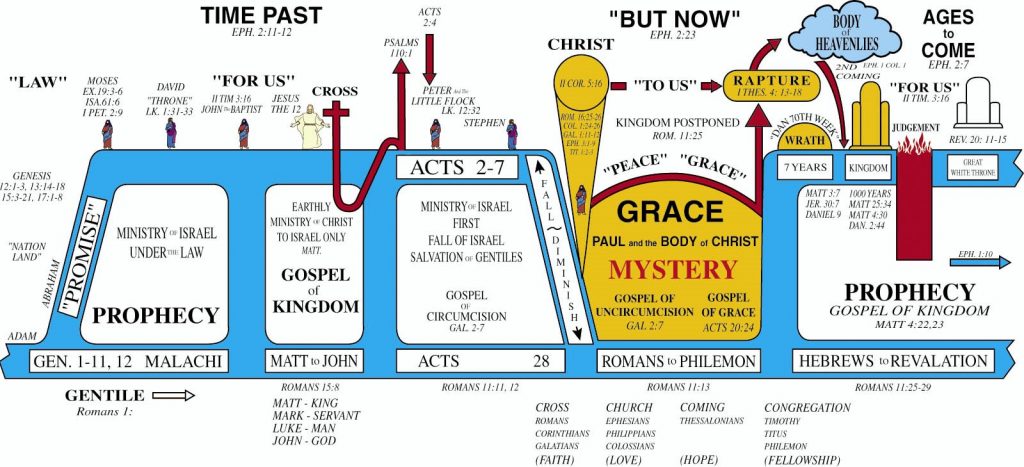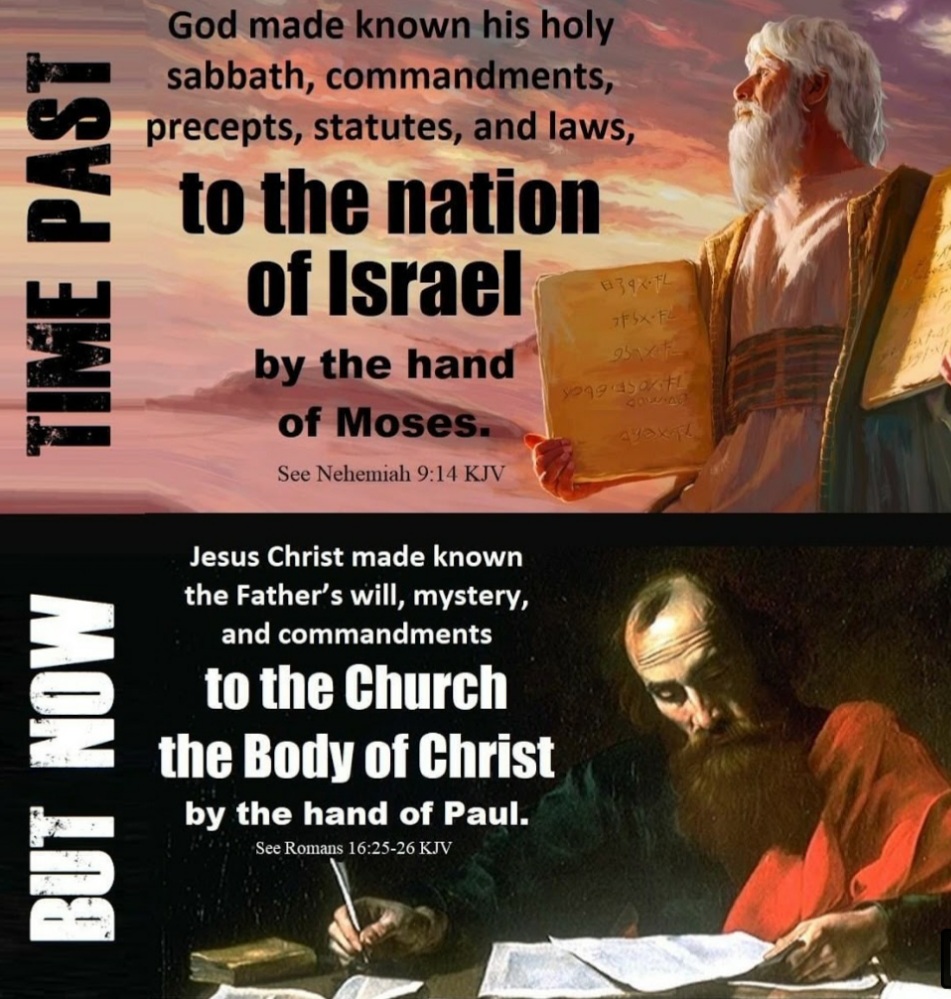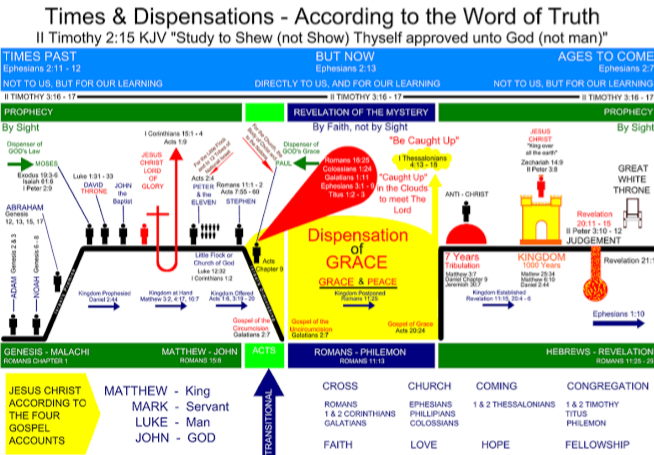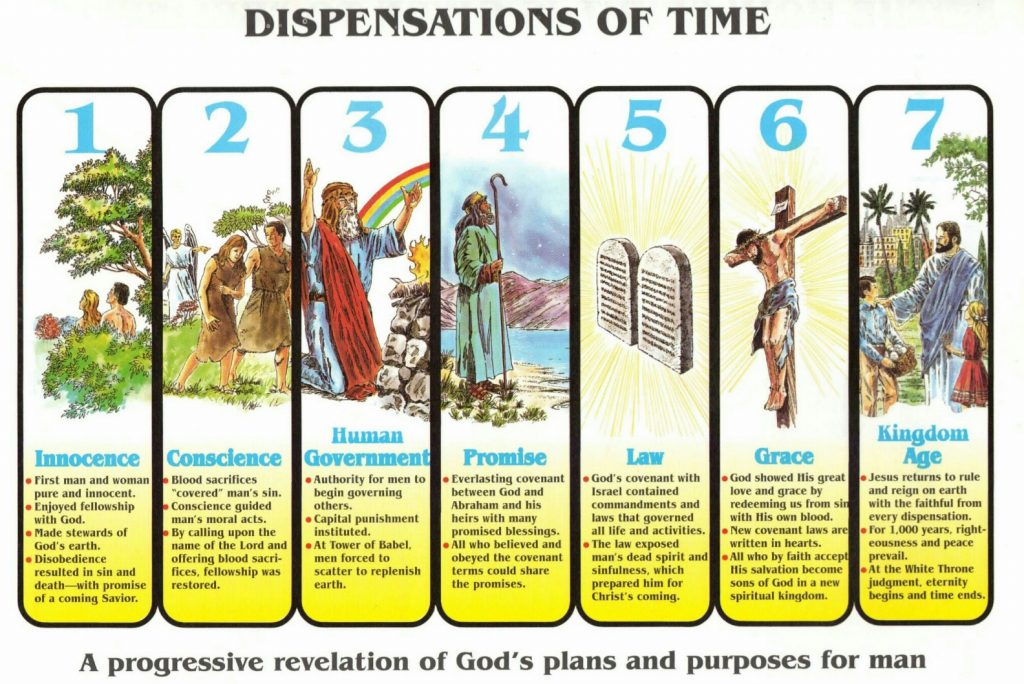2 Timothy 2:15
Study to shew thyself approved unto God, aworkman that needeth not to be ashamed, rightly dividing the word of truth.
All of the Bible is FOR the believer but not all of the Bible is TO the believer!
The key to understanding and rightly dividing the word of God is understanding the word….DISPENSATION!!
Paul mentions this word 4 times…
1 Corinthians 9:17 King James Version
For if I do this thing willingly, I have a reward: but if against my will, a dispensation of the gospel is committed unto me.
Ephesians 1:10 King James Version
That in the dispensation of the fulness oftimes he might gather together in one all things in Christ, both which are in heaven,and which are on earth; even in him:
Colossians 1:25 King James Version
Whereof I am made a minister, according tothe dispensation of God which is given to me for you, to fulfil the word of God;
Ephesians 3:2 King James Version
If ye have heard of the dispensation of the grace of God which is given me to you-ward:
The defination of dispensationalism:
Dispensationalism is a theological system that emphasizes the literal interpretation of Bible prophecy, recognizes a distinction between Israel and the Church, and organizes the Bible into different dispensations or administrations.
Understanding DISPENSATIONS !
All of the Bible is FOR the believer but not all of the Bible is TO the believer!
The key to understanding and rightly dividing the word of God is understanding the word….DISPENSATION!
“What are the seven dispensations?”
Dispensationalism is a method of interpreting history that divides God’s work and purposes toward mankind into different periods of time. Usually, there are seven dispensations identified, although some theologians believe there are nine. Others count as few as three or as many as thirty-seven dispensations. In this article, we will limit ourselves to the seven basic dispensations found in Scripture.
The first dispensation is called the Dispensation of Innocence (Genesis 1:28-30 and 2:15-17). This dispensation covered the period of Adam and Eve in the Garden of Eden. In this dispensation God’s commands were to (1) replenish the earth with children, (2) subdue the earth, (3) have dominion over the animals, (4) care for the garden, and (5) abstain from eating the fruit from the tree of knowledge of good and evil. God warned of the punishment of physical and spiritual death for disobedience. This dispensation was short-lived and was brought to an end by Adam and Eve’s disobedience in eating the forbidden fruit and their expulsion from the garden.
The second dispensation is called the Dispensation of Conscience, and it lasted about 1,656 years from the time of Adam and Eve’s eviction from the garden until the flood (Genesis 3:8–8:22). This dispensation demonstrates what mankind will do if left to his own will and conscience, which have been tainted by the inherited sin nature. The five major aspects of this dispensation are 1) a curse on the serpent, 2) a change in womanhood and childbearing, 3) a curse on nature, 4) the imposing of difficult work on mankind to produce food, and 5) the promise of Christ as the seed who will bruise the serpent’s head (Satan).
The third dispensation is the Dispensation of Human Government, which began in Genesis 8. God had destroyed life on earth with a flood, saving just one family to restart the human race. God made the following promises and commands to Noah and his family:
1. God will not curse the earth again.
2. Noah and family are to replenish the earth with people.
3. They shall have dominion over the animal creation.
4. They are allowed to eat meat.
5. The law of capital punishment is established.
6. There never will be another worldwide flood.
7. The sign of God’s promise will be the rainbow.
Noah’s descendants did not scatter and fill the earth as God had commanded, thus failing in their responsibility in this dispensation. About 325 years after the flood, the earth’s inhabitants began building a tower, a great monument to their solidarity and pride (Genesis 11:7-9). God brought the construction to a halt, creating different languages and enforcing His command to fill the earth. The result was the rise of different nations and cultures. From that point on, human governments have been a reality.
The fourth dispensation, called the Dispensation of Promise, started with the call of Abraham, continued through the lives of the patriarchs, and ended with the Exodus of the Jewish people from Egypt, a period of about 430 years. During this dispensation God developed a great nation that He had chosen as His people (Genesis 12:1–Exodus 19:25).
The basic promise during the Dispensation of Promise was the Abrahamic Covenant. Here are some of the key points of that unconditional covenant:
1. From Abraham would come a great nation that God would bless with natural and spiritual prosperity.
2. God would make Abraham’s name great.
3. God would bless those that blessed Abraham’s descendants and curse those that cursed them.
4. In Abraham all the families of the earth will be blessed. This is fulfilled in Jesus Christ and His work of salvation.
5. The sign of the covenant is circumcision.
6. This covenant, which was repeated to Isaac and Jacob, is confined to the Hebrew people and the 12 tribes of Israel.
The fifth dispensation is called the Dispensation of Law. It lasted almost 1,500 years, from the Exodus until it was suspended after Jesus Christ’s death. This dispensation will continue during the Millennium, with some modifications. During the Dispensation of Law, God dealt specifically with the Jewish nation through the Mosaic Covenant, or the Law, found in Exodus 19–23. The dispensation involved temple worship directed by priests, with further direction spoken through God’s mouthpieces, the prophets. Eventually, due to the people’s disobedience to the covenant, the tribes of Israel lost the Promised Land and were subjected to bondage.
The sixth dispensation, the one in which we now live, is the Dispensation of Grace. It began with the New Covenant in Christ’s blood (Luke 22:20). This “Age of Grace” or “Church Age” occurs between the 69th and 70th week of Daniel 9:24. It starts with the coming of the Spirit on the Day of Pentecost and ends with the Rapture of the church (1 Thessalonians 4). This dispensation is worldwide and includes both Jews and the Gentiles. Man’s responsibility during the Dispensation of Grace is to believe in Jesus, the Son of God (John 3:18). In this dispensation the Holy Spirit indwells believers as the Comforter (John 14:16-26). This dispensation has lasted for almost 2,000 years, and no one knows when it will end. We do know that it will end with the Rapture of all born-again believers from the earth to go to heaven with Christ. Following the Rapture will be the judgments of God lasting for seven years.
The seventh dispensation is called the Millennial Kingdom of Christ and will last for 1,000 years as Christ Himself rules on earth. This Kingdom will fulfill the prophecy to the Jewish nation that Christ will return and be their King. The only people allowed to enter the Kingdom are the born-again believers from the Age of Grace, righteous survivors of the seven years of tribulation, and the resurrected Old Testament saints. No unsaved person is allowed access into this kingdom. Satan is bound during the 1,000 years. This period ends with the final judgment (Revelation 20:11-14). The old world is destroyed by fire, and the New Heaven and New Earth of Revelation 21 and 22 will begin.
Dispensationalism has to do with making proper divisions in the Bible!
While rightly dividing the word of truth the questions to be asked are:
1. Was it intented for you?
2. Was it intented for the Jewish nation?
3. Was it intented for a non believer?
4. Was it intended for Gentiles?
5. Was it intented for the Church?
The 3 basic questions before reading any
book are…
1. Whose speaking?
2. To whom are they speaking?
3. About what are they speaking?
A text without a context is a pretext as proof text!!
Making proper distinctions in the Word of God is essential to understanding the Word of God! Understanding the context is 90% of the problem in rightly dividing the word of truth!
Right Divisions
When the bible says “rightly dividing” we can identify 2 main truths.
1.There are divisions in the bible. The divisions in the bible can be observed by time periods, events, Judges, Kings, testaments, covenants, ages, nationalities and more. Learning where these divisions are and why, can help us discern truth and have a better understanding of the word.
2.It can be wrongly divided. When the word of God is wrongfully divided you end up with the many different religions and misunderstandings that we see so prevalent today. When people do not put scripture in the proper context, allowing the Bible to identify it’s position, you will end up with biblical heresy. When you hold to it to a point of understanding, and you begin to teach it; you now have false doctrine.
